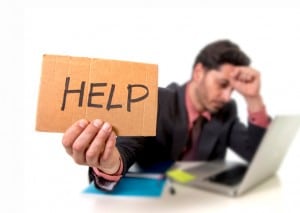Crisis planning comes naturally to some people. These people appear to have been born ready to prepare for the worst in any given situation. They’re the ones who’ll have the emergency phone charger on hand, or arrive at the pitch with the presentation saved down on their laptop and two USB sticks.
Then there are the ones who forget to pack the laptop at all.
The thing is we’ll all forget to pack the laptop at one point or another. We’re all human. We all make mistakes. But we can prepare for these mistakes and plan for how we will manage the fallout.
To see what can happen when we don’t have a solid crisis plan in place; one just has to look at the current state of UK politics. It’s a mess (that’s putting it lightly). The facts are simple; a referendum was held and just over half of the electorate voted to leave the EU. The trouble is, even those who campaigned for it don’t seem to have prepared to win.
What happens to all of that extra funding for struggling communities? Where will that come from? What laws will the UK keep, and which will they reject? How will they pick these laws and regulations apart? What will happen to local communities if major employers decide to move their businesses outside of the UK? What’s the worst case scenario when looking at economic, political and social consequences of the vote? These are just some of the questions that needed to be thought about before a decision to hold such a vote was even considered.
What we’re seeing now, on a national and even international scale, is what can happen when proper planning and consideration isn’t in place.
Of course, most brands dealing with crises won’t experience such a monumental reaction to any problems that they encounter, but failure to plan can still have a considerable negative affect on the brand.
Three keys to considered crisis planning
“What would happen if…?” is the question at the heart of all crisis planning.
What would happen if the CEO died suddenly? Or a key employee, with the institutional knowledge of methuselah won the lottery and ran off into the sunset?
Identify risks and put contingency plans in place
Identifying risk means having to consider things we’d rather not think about. “Alexander would never abandon the company!” (Alexander can’t live up to that promise if he’s dead.) But circumstances can change in just a few hours, and the business must be able to function when they do.
Businesses that fail to prepare for events they deem unlikely will have major problems dealing with a crisis. How to do you manage a crisis when you (a) don’t have a plan and (b) are reeling from the shock of the event even happening?
Identify a leader
Someone needs to be in charge of the crisis. They need to ensure that external and internal stakeholders are informed of the situation, and that they are aware of the plan of action. They need to appoint a single spokesperson and ensure they get a single, unifying, calming message distributed on both internal and external comms channels.
Sometimes this will mean that someone just has to have the authority to shout STOP when everyone around them is losing their heads. Crisis is a great way to get in touch with our fight-or-flight reflexes, but nobody wants to see the person they’re looking to for reassurance and facts running around in a blithering panic shouting “we’re all going to die!” at the top of their lungs.
Have a recovery plan
The crisis period should be brief. It’s the initial shock of the “bad thing” happening and the organisations initial response. Organisations that have solid crisis plans, and enact them well, should be able to switch from crisis to recovery mode as soon as the triggering event is over. However, some events, like the Deepwater Horizon explosion, trigger follow on events that prolong the crisis (in this case the resulting oil spill lasted for 87 days).
You can’t recover from a crisis until you’ve solved the initial problem and satisfied stakeholders that you have the issue firmly under control. Only then can you begin the recovery period, where trust and reputation is rebuilt.







